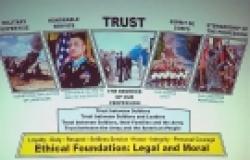Book Review: Ethics, Diversity, and World Politics: Saving Pluralism From Itself?

Ethics, Diversity, and World Politics: Saving Pluralism From Itself? by John Williams. Oxford: Oxford University Press, 2015. 240 pp, £55 hardcover 9780198733621
John Williams has offered a new moral vision for students of international relations, particularly those engaged in debates in and around the English School. He aims in his book to “offer a reformulation of a pluralist ethical position” on world order (p.1). To this end, it applies Hannah Arendt’s political theory and contends that “pluralism must be based on a commitment to the ethical desirability of a world of ethically diverse human communities” (p.5). The defence of pluralism here is based on diversity as a value in itself, rather than as an historical condition.
This position is developed and defended in wide-ranging discussion, from the bases of knowledge to drone warfare. Chapters 1 and 2 rehearse the case against a pluralist international society, identifying moral scepticism, state-centricity, and conservatism as its problematic features. Chapter 3 applies a reformulated pluralism to the idea of international society by suggesting that it is one of many human communities in world politics. Chapter 4 extends this application to the idea of institutions and makes a foray into the institutional role of resistance in world politics. Through discussion of human security, targeted killing, and distributive justice, Chapter 5 demonstrates the variety of additional insights that a reformulated pluralist outlook can bring to the table. The final chapter points the way forward for English School studies with a fascinating reassessment of the concepts of the international system, international society, and world society.
There is much to admire in this book. First, it makes a needed integration of Barry Buzan’s From International to World Society? and Andrew Hurrell’s On Global Order, two major English School statements on the implications of globalization. Second, Williams’ reformulation of pluralism works to dissolve some of the state-centricity and world order conservatism that students often find unappealing in the English School: but it does so without embracing the flaws of Kantian universalism. Instead, it crafts an image of human plurality, while maintaining a critical stance, by emphasizing the role of subaltern politics in the normative theory of international society.
This book’s greatest achievement is its rejuvenation of the English School’s somewhat tired pluralist – solidarist debate, about whether international society is a practical or purposive association. Williams’ intervention helps clarify what is at stake in this debate, within the context of globalization, and takes an appealing pluralist stand. It also helps to clarify some of the epistemological bases of the debate, through a discussion of the role of knowledge in pluralist politics. This book will serve as a resource for advanced students with an English School interest and will be an essential reference point for the pluralist – solidarist debate in future.
There are, however, some points of constructive criticism that can be made to further discussion. First, the narrow scope of the debate gives it the scent of the narcissism of minor differences. While the pluralist position is applied to some world order issues, rival realist, liberal, and other positions on world order beyond the English School go unchallenged. This leaves the question of world order reform unclear and finds little room for the analysis of major world order debates, such as the rise of China and climate change, that make the English School relevant.
Second, the defence of pluralist political theory is too limited. Hannah Arendt is fashionable in British International Relations. Yet, the defence leans heavily on her thought while other significant and ready pluralist thinkers are absent or dismissed. William E. Connolly’s pluralism is dismissed for defensible reasons, but it could have been just as easily mustered in support. The work of James Tully is also absent, although his pluralist thought is well developed. An engagement with the value pluralism of Isaiah Berlin, John Gray, and Charles Taylor would have been illuminating. A reminder of Ernest Barker’s earlier pluralism would also have been welcome and profitable.
Third, Williams provides an alternative approach to the much debated concept of a world society, as the ‘totality of interhuman communities interaction’ (p.192): but this raises more questions than it answers, particularly how such interaction forms a society or what the historical character of that society is. In relation to this, fourth, the emphasis on the diversity of human identities, goods, and ways of life is much appreciated, but are there not also historically predominant outlooks on the self and cosmos, prevailing worldviews or frames of mind, ascendancies of certain historically specific weltanschauungen? Self-conceptions are diverse, but one cannot coherently or authentically embrace the outlook, self-conception, and life aims of an ancient Greek, Roman, or medieval today. There is a sense that, despite our diversity, it is 2016. There are historical limits to diversity.
If this point is granted, then is it not plausible to consider historically contingent solidarities of humankind? In an age of multiple but entangled and globalizing modernities, is it out of the question to suggest the existence of emerging common sentiments and values, different but interrelated ways of life across the plurality of humankind? Are there not politically significant cultural resemblances, common affinities, and predominant self-conceptions in a post-colonial and capitalist world of multiple but entangled and globalizing modernities? Humankind is not necessarily becoming ‘one’ but, in an era of mass migrations and interdependencies, the clarification of commonalities is important.
Aaron McKeil is a PhD Candidate in the Department of International Relations at the London School of Economics and Political Science.


